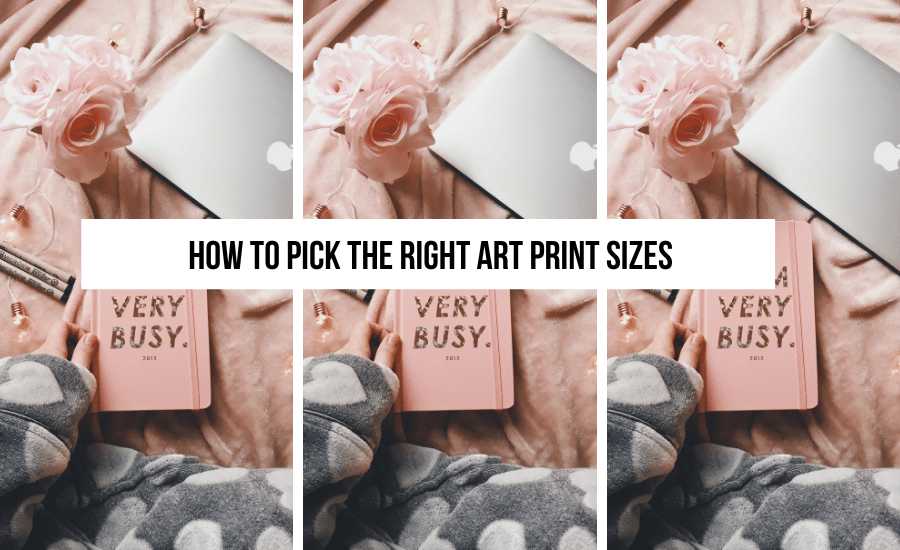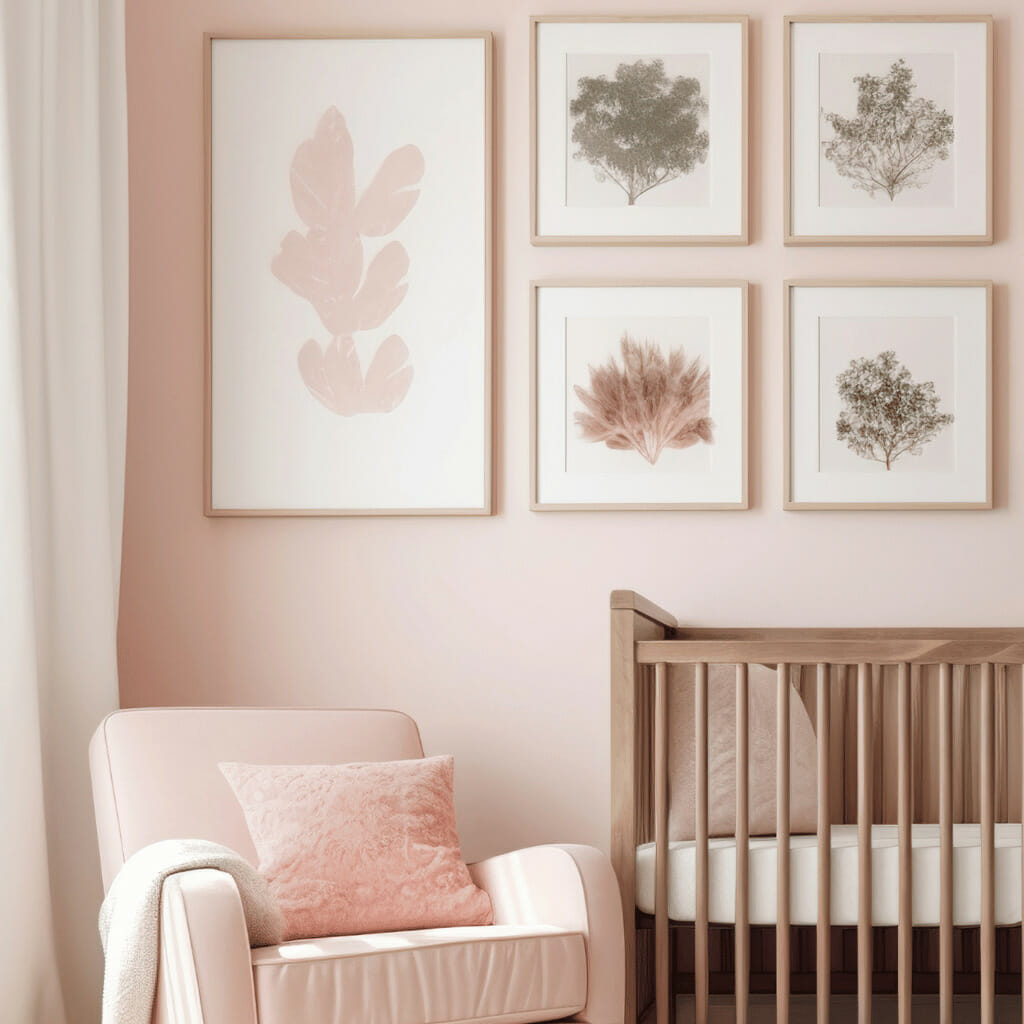Are you an artist or a business owner looking to optimize your sales in the art print market? Look no further! In this comprehensive guide, we will walk you through the world of standard art print sizes and provide you with valuable insights on how to make the most of your prints. From understanding the different size options available to choosing the right print size for your artwork, we’ve got you covered. We understand that selling art prints is not just about creating beautiful artwork, but also about presenting it in a way that appeals to your target audience.
That’s why we will delve into the psychology behind print sizes and how they can impact your customers’ buying decisions. Whether you’re selling art prints online or in a physical gallery, our guide will equip you with the knowledge and strategies you need to optimize your sales and stand out in the competitive art market. So, let’s dive in and unlock the secrets to maximizing your art print sales!
This blog post is all about the ultimate guide to standard art print sizes and how to optimize your sales.

Home > Etsy Biz > Art Print Sizes
DISCLOSURE: This is not a sponsored post. Through my links, I may receive a commission if you decide to make purchases at no cost for yourself! Check out our disclaimer for more info on how it works.
Ready to embark on your Etsy business journey but unsure where to begin? Join our free masterclass, where we empower you to start, manage, and scale your Etsy business into a full-time income. With our guidance, 9,000+ individuals have found success, even without a social media presence or email list. Step into the world of Etsy entrepreneurship, and let us guide you to success. Join us now!
Table of contents
- Importance of Optimizing Sales Through Standard Art Print Sizes
- Common Standard Art Print Sizes and Their Dimensions
- Choosing the Right Standard Art Print Size for Your Artwork
- Displaying and Framing Standard Art Prints Effectively
- Printing Options for Standard Art Print Sizes
- How Standard Art Print Sizes Impact Shipping and Packaging
- Pricing Considerations for Standard Art Prints
- Marketing and Promoting Standard Art Prints Using Size Optimization
- Conclusion and Final Tips for Optimizing Sales with Standard Art Print Sizes
- Ready To Start Selling On Etsy?
- New On The Blog:
Importance of Optimizing Sales Through Standard Art Print Sizes
When it comes to selling art prints, optimizing your sales through standard art print sizes is crucial. Standard sizes provide a sense of familiarity and convenience to your customers. They are widely recognized and easily fit into standard frames, making it easier for your customers to display your prints in their homes or offices. By offering standard sizes, you eliminate the need for custom framing, which can be costly and time-consuming for your customers. Additionally, standard sizes allow for efficient printing and packaging processes, saving you time and money.
Common Standard Art Print Sizes and Their Dimensions
To optimize your sales, it’s important to familiarize yourself with the common standard art print sizes and their dimensions. Here are some of the most popular standard sizes used in the art print industry:
1. 8×10 inches: This size is great for smaller prints and is often used for photographs or art prints that are meant to be displayed in smaller spaces or as part of a collection.
2. 11×14 inches: Slightly larger than the 8×10 size, the 11×14 print is a popular choice for both photographs and art prints. It offers a larger viewing area without being too overwhelming.
3. 16×20 inches: This size is perfect for showcasing larger prints with more intricate details. It’s commonly used for statement pieces or artwork that demands attention.
4. 18×24 inches: The 18×24 print is a versatile size that works well for a variety of artworks, including posters, illustrations, and digital art. It provides a larger canvas for your artwork to shine.
5. 24×36 inches: If you want to make a bold statement with your prints, the 24×36 size is the way to go. It’s commonly used for large-scale artworks or posters that need to capture attention from a distance.
Choosing the Right Standard Art Print Size for Your Artwork
Selecting the right standard art print size for your artwork is a crucial step in optimizing your sales. Consider the following factors when making your decision:
1. Artistic intent: Think about the overall vision and artistic intent behind your artwork. Does it require a larger canvas to fully showcase its details and impact, or is a smaller size sufficient to convey its essence?
2. Target audience: Understand your target audience and their preferences. Are they more likely to be interested in smaller, affordable prints, or are they looking for statement pieces that command attention? Researching your audience’s preferences can help you make an informed decision.
3. Display space: Consider the typical display space in homes or offices. If your target audience is more likely to have limited wall space, smaller prints might be a better fit. On the other hand, if your audience tends to have larger, empty walls, opt for larger prints that can fill the space effectively.
Remember, choosing the right size is not only about creating visually appealing prints but also about meeting the needs and preferences of your customers. By selecting the appropriate standard art print size, you increase the likelihood of attracting potential buyers and optimizing your sales.
Displaying and Framing Standard Art Prints Effectively
Once you’ve chosen the right standard art print size for your artwork, it’s essential to display and frame them effectively. The way you present your prints can significantly impact your customers’ perception and willingness to purchase. Here are some tips for displaying and framing your standard art prints:
1. Matting and framing: Consider using matting and framing techniques to enhance the visual appeal of your prints. Matting creates a border between the artwork and the frame, providing a clean and professional look. Choose frames that complement your artwork, whether it’s a sleek modern frame or a vintage-inspired one.
2. Grouping and arrangement: Experiment with different ways of grouping and arranging your prints to create visually appealing displays. You can create gallery walls or thematic groupings to showcase a cohesive collection. Play with different sizes, colors, and styles to create a dynamic and eye-catching display.
3. Lighting: Proper lighting is key to showcasing your prints and capturing their true essence. Consider using spotlights or track lighting to highlight specific artworks and create a focal point. Natural lighting can also be a great option if it complements your artwork.
Remember, the way you present your prints can significantly impact how they are perceived by potential buyers. By investing time and effort into effective display and framing techniques, you can elevate the overall value and desirability of your art prints.
Printing Options for Standard Art Print Sizes
When it comes to printing your standard art prints, you have several options to choose from. Each printing method offers its own advantages and considerations. Here are some common printing options for standard art print sizes:
1. Digital printing: Digital printing is a popular and cost-effective option for small to medium-sized print runs. It offers quick turnaround times and allows for easy customization. However, digital prints may not have the same color accuracy and longevity level as other printing methods.
2. Giclée printing: Giclée printing is a high-quality and archival printing method that uses pigment-based inks to produce vibrant and long-lasting prints. It’s a great option for reproducing fine art and achieving a high level of detail and color accuracy. Giclée prints are often preferred by collectors and art enthusiasts.
3. Offset printing: Offset printing is a traditional printing method that offers high-quality and consistent results. It’s suitable for larger print runs and can achieve precise color reproduction. However, offset printing can be more expensive and time-consuming compared to digital or giclée printing.
When choosing a printing option, consider factors such as budget, print quality, turnaround time, and the desired level of customization. It’s recommended to work with a reputable printing service that specializes in art prints to ensure the best possible results.
How Standard Art Print Sizes Impact Shipping and Packaging
Shipping and packaging are crucial considerations when selling art prints. Standard art print sizes can impact these processes in several ways:
1. Packaging materials: Standard sizes allow for the use of pre-made packaging materials, such as mailers or tubes, which can save you time and money. These packaging options are readily available and specifically designed to protect art prints during transit.
2. Shipping costs: Standard sizes are generally easier and more cost-effective to ship compared to custom sizes. They can fit into standardized shipping boxes and are less likely to incur additional fees for oversized packages.
3. Packaging efficiency: Standard sizes streamline your packaging processes, making them more efficient. You can prepare your packaging materials in advance, reducing the time required for each shipment. This allows you to fulfill orders quickly and maintain a positive customer experience.
By optimizing your shipping and packaging processes through standard art print sizes, you can minimize costs, improve efficiency, and ensure that your prints arrive safely and in pristine condition.
Pricing Considerations for Standard Art Prints
Pricing your art prints appropriately is essential for optimizing your sales. Here are some pricing considerations when it comes to standard art prints:
1. Cost of production: Calculate the cost of production, including printing, packaging, and any additional expenses. Consider the type of printing method, materials used, and any labor costs involved.
2. Market research: Research the market to understand the pricing standards for art prints of similar quality and size. This will help you determine a competitive and fair price for your prints.
3. Perceived value: Consider the perceived value of your prints based on factors such as your brand reputation, the uniqueness of your artwork, and the overall presentation. Remember that pricing too low may devalue your work, while pricing too high may deter potential buyers.
4. Profit margin: Determine your desired profit margin and factor it into your pricing strategy. Be mindful of balancing your profit goals with the need to remain competitive in the market.
It’s important to strike a balance between pricing your art prints competitively and ensuring that you’re adequately compensated for your time, effort, and talent. Regularly review and adjust your pricing strategy based on market trends and customer feedback.
Marketing and Promoting Standard Art Prints Using Size Optimization
Size optimization can play a significant role in marketing and promoting your standard art prints. Here are some strategies to consider:
1. Visual representation: Use high-quality images and visuals to showcase your prints in their intended sizes. Provide multiple views and close-ups to give potential buyers a clear understanding of what they can expect.
2. Comparison visuals: Include comparison visuals that demonstrate how your prints look in different sizes and how they can transform a space. This helps potential buyers visualize the impact your prints can have in their own homes or offices.
3. Size-specific promotions: Offer size-specific promotions or discounts to encourage buyers to try different sizes. This can help overcome any hesitations they may have about purchasing larger prints or trying a new size.
4. Educational content: Create educational content that highlights the benefits and advantages of standard art print sizes. Explain how they offer convenience, ease of framing, and compatibility with existing frames, making them an attractive choice for buyers.
5. Collaborations and partnerships: Collaborate with interior designers, influencers, or other artists to showcase your prints in real-life settings. This can help potential buyers visualize how your prints can enhance their own spaces.
By incorporating size optimization into your marketing and promotional efforts, you can effectively communicate the unique selling points of your standard art prints and attract a wider audience.
Conclusion and Final Tips for Optimizing Sales with Standard Art Print Sizes
In conclusion, optimizing your sales with standard art print sizes is a strategic approach that can enhance the appeal and marketability of your prints. By understanding the different size options available, choosing the right print size for your artwork, displaying and framing effectively, selecting the appropriate printing options, considering shipping and packaging, setting competitive prices, and leveraging size optimization in your marketing efforts, you can maximize your art print sales and stand out in the competitive art market.
Remember, selling art prints is not just about creating beautiful artwork; it’s also about presenting it in a way that resonates with your target audience. Take the time to research and understand your audience’s preferences, and use that knowledge to inform your decisions regarding print sizes, display techniques, and pricing. Continuously evaluate and adjust your strategies based on market trends and customer feedback to ensure ongoing success in the art print market.
So, armed with the knowledge and strategies shared in this guide, go ahead and optimize your art print sales by leveraging the power of standard art print sizes. Happy selling!
Ready To Start Selling On Etsy?
If you’re considering starting your own Etsy store but unsure about which products to offer, my signature course, the Etsy Mastery Course, is your ultimate guide. Learn how to start, manage, and scale your Etsy business to a full-time income.

New On The Blog:
- Canva Resize images Step-by-Step Guide to Resize Designs Fast
- Custom Canva Frames: How to Create and Sell Your Own Frames Step by Step
- Instagram Hacks: How to Find Customers for Free Using Instagram (3 Steps)
- How to Hide Instagram Account (Step-by-Step Privacy Guide)
- Etsy Business Tools: 10 Must-Have Apps Every Etsy Seller Needs in 2026
- Content Creation for Social Media: A Step-by-Step AI Workflow for 2026

+ show Comments
- Hide Comments
add a comment